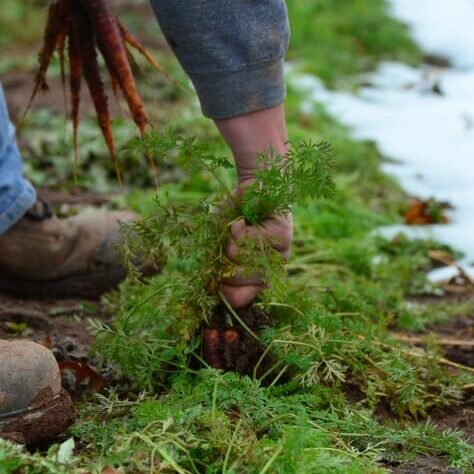
Local farmers adapt to climate chaos
Nova Scotian farmers can now grow crops they couldn’t 20 years ago
Climate change is causing Nova Scotia’s agricultural industry to evolve as farmers build climate-controlled greenhouses and can grow a new variety of crops.
Alicia King, a farmer and vice chair of the Nova Scotia Federation of Agriculture, claims the effects of climate change haven’t been all bad, and due to rising temperatures, local vegetation is becoming more diverse.
“We’re now able to grow crops here in Nova Scotia that even 20 years ago we wouldn’t have considered to be possible,” said King. “Grapes and sweet potatoes are a great example of something we never imagined we would have been able to grow here.”
While Nova Scotia’s changing climate has allowed farmers to continue harvesting summer crops into the fall, the past year has been especially challenging for farmers.
Extreme weather
Extreme weather conditions such as a drought-like spring, wildfires, major flooding and Hurricane Fiona have damaged local vegetation and livestock.
In 2023, Hennigar’s Farms in Wolfville lost over $40,000 in produce due to extreme temperatures. Luckily, they had planted 120 peach trees inside a climate-controlled greenhouse, according to farm manager Mike Gardener.
“We were the only ones with peaches in the province,” said Gardener. “In this industry, you just have to be positive and try to make the most of everything.”
After a windstorm in 2018, all of Gardener’s apples fell to the ground and were unable to be sold or juiced. Instead, Gardener used the apples to make alcoholic cider which has been successful ever since.
“I think in the next few years there will be a rise in the use of climate-controlled atmospheres,” said Gardener. “I think the future of farming is pretty much here. The guys who are proactive are already leading the industry down the path of climate control and season extension.”
Eyking Farms in Millville is taking preventative measures to lessen problems caused by tropical storms and hurricanes, according to co-owner Chris Eyking.
“Because of the severity of the storms and the length of power outages we have to have more infrastructure and generators in place to accommodate the livestock,” said Eyking.
The farm has also created a solar power system to offset the farm’s carbon footprint, according to Eyking.
Help from organizations
To help farmers adapt to the changing climate, the Nova Scotia Federation of Agriculture is developing a new program to safeguard local resources. The program will be funded by the Nova Scotia Agriculture Recovery Fund and aims to protect farmers, help alleviate food insecurity and support rural communities.
“The farming we do today isn’t the same as it will be in a decade, and it’s not the same as it was a decade ago,” said King.
King hopes the program will encourage farmers to become more equipped to deal with the environment’s changing conditions.






